
Laura Jane Addams was an American settlement activist, reformer, social worker, sociologist, public administrator, philosopher, and author. She was a leader in the history of social work and Women's suffrage. In 1889, Addams co-founded Hull House, one of America's most famous settlement houses, in Chicago, Illinois, providing extensive social services to poor, largely immigrant families. Philosophically a "radical pragmatist", she was arguably the first woman public philosopher in the United States. In the Progressive Era, when even presidents such as Theodore Roosevelt and Woodrow Wilson identified themselves as reformers and might be seen as social activists, Addams was one of the most prominent reformers.

Hull House was a settlement house in Chicago, Illinois, that was co-founded in 1889 by Jane Addams and Ellen Gates Starr. Located on the Near West Side of Chicago, Hull House, named after the original house's first owner Charles Jerald Hull, opened to serve recently arrived European immigrants. By 1911, Hull House had expanded to 13 buildings. In 1912, the Hull House complex was completed with the addition of a summer camp, the Bowen Country Club. With its innovative social, educational, and artistic programs, Hull House became the standard bearer for the movement; by 1920, it grew to approximately 500 settlement houses nationally.
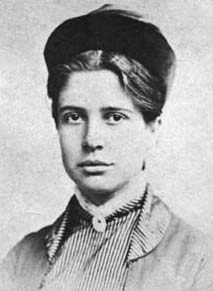
Florence Moltrop Kelley was an American social and political reformer who coined the term wage abolitionism. Her work against sweatshops and for the minimum wage, eight-hour workdays, and children's rights is widely regarded today.
The settlement movement was a reformist social movement that began in the 1880s and peaked around the 1920s in the United Kingdom and the United States. Its goal was to bring the rich and the poor of society together in both physical proximity and social connection. Its main object was the establishment of "settlement houses" in poor urban areas, in which volunteer middle-class "settlement workers" would live, hoping to share knowledge and culture with, and alleviate the poverty of, their low-income neighbors. The settlement houses provided services such as daycare, English classes, and healthcare to improve the lives of the poor in these areas. The settlement movement also spawned educational/reform movements. Both in the United Kingdom and the United States, settlement workers worked to develop a unique activist form of sociology known as Settlement Sociology. This science of the social movement is neglected in the history of sociology in favor of a teaching-, theory- and research university–based model.
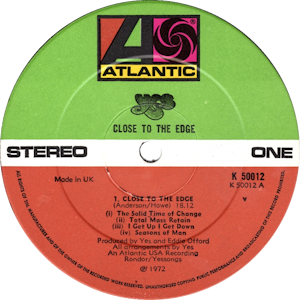
"Close to the Edge" is a song by the English progressive rock band Yes, featured on their fifth studio album Close to the Edge (1972). The song is over 18 minutes in length and takes up the entire first side of the album. It consists of four movements.

The White Ribbon Association (WRA), previously known as the British Women's Temperance Association (BWTA), is an organization that seeks to educate the public about alcohol, tobacco, and other drugs, as well as gambling.
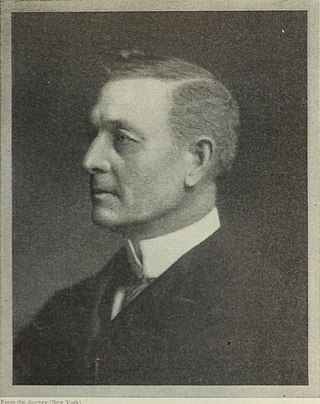
Charles Richmond Henderson (1848–1915) was an American Baptist minister and sociologist. After being a pastor for nearly 20 years in Terre Haute and Detroit, he took an appointment as an assistant professor of sociology at the University of Chicago, where he became a tenured professor. He published several works on society in the United States, the prison system, and the sociology of charities.
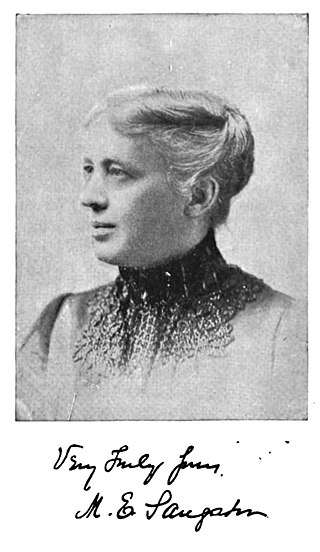
Margaret Elizabeth Sangster was an American poet, author, and editor. Her poetry was inspired by family and church themes, and included hymns and sacred texts. She worked in several fields including book reviewing, story writing, and verse making. For a quarter of a century, Sangster was known by the public as a writer, beginning as a writer of verse, and combining later the practical work of a critic and journalist. Much of her writing did not include her name.
The Free Speech League was a progressive organization in the United States that fought to support freedom of speech in the early 20th century. The League focused on combating government censorship, particularly relating to political speech and sexual material. It was a predecessor of the American Civil Liberties Union.

Enella Benedict was an American realism and landscape painter. She taught at the School of the Art Institute of Chicago and was a founder and director for nearly 50 years for the Art School at the Hull House.
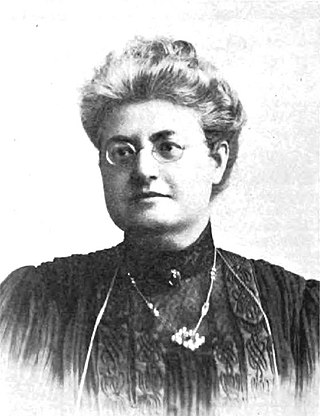
Eleanor Sophia Smith was an American composer and music educator. She was one of the founders of Chicago's Hull House Music School, and headed its music department from 1893 to 1936.
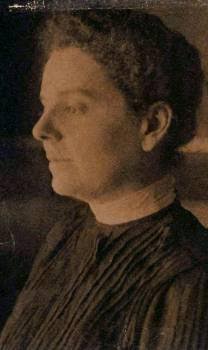
Mary Rozet Smith was a Chicago-born US philanthropist who was one of the trustees and benefactors of Hull House. She was the partner of activist Jane Addams for over thirty years. Smith provided the financing for the Hull House Music School and donated the school's organ as a memorial to her mother. She was active in several social betterment societies in Chicago at the turn of the 20th century.

Socialhousekeeping, also known as municipal or civil housekeeping, was a socio-political movement that occurred primarily through the 1880s to the early 1900s in the Progressive Era around the United States.

The College Settlements Association (CSA) was an American organization founded during the settlement movement era which provided support and control of college settlements for women. Organized February 1890, it was incorporated on January 5, 1894. The settlement houses were established by college women, were controlled by college women, and had a majority of college women as residents. The CSA was devised to unite college women in the trend of a modern movement, to touch them with a common sympathy, and to inspire them with a common ideal. It was believed that young students should be quickened in their years of vague aspiration and purely speculative energy by possessing a share in this broad practical work.

Rivington Street Settlement was an American settlement house which provided educational and social services on the Lower East Side of the Manhattan borough of New York City, New York. Under the auspices of the College Settlements Association (CSA), it focused on the mostly immigrant population of the neighborhood. Originally located at 95 Rivington Street (1889-), other locations later included 96 Rivington Street (1892-1901), 188 Ludlow Street (1902–), 84-86 First Street (1907-), and Summer Home, Mount Ivy, New York (1900-). The Rivington Street Settlement was established by college women, was controlled by college women, and had a majority of college women as residents. The Rivington Street Settlement was a kind of graduate school in economics and sociology, with practical lessons in a tenement–house district - a kind of sociological laboratory.
Jean Gurney Spahr was an American social reformer. A pioneer in the U.S. settlement movement, she was a co-founder and officer of the College Settlements Association (CSA), and the head of the Rivington Street Settlement in New York City.
Neighborhood House is an American community center located in Louisville, Kentucky. Founded in 1896, as North Broadway Social Settlement it was renamed Neighborhood House in 1902, when it incorporated.
Florence Garrettson Spooner was an American social reformer actively engaged in humane and reformatory lines. Born in Baltimore, Maryland, she made her home in Boston, Massachusetts, where she served as President of the Massachusetts Prison Reform League. Spooner was known throughout the House of Correction as the "women's missionary friend". She was the founder of the Anti-Death Penalty League. In her day, Spooner's name became as famous as Elizabeth Fry and Dorothea Dix.
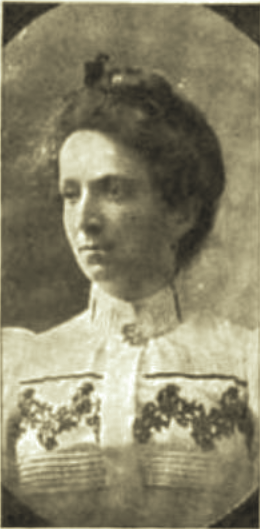
Jane Agnes Stewart was an American author, editor, and contributor to periodicals. She was a special writer for many journals on subjects related to woman's, religious, educational, sociological, and reform movements. Stewart was a suffragist and temperance activist. She traveled to London, Edinburgh, and Paris as a delegate of world's reform and religious conventions.
Church Association for the Advancement of the Interests of Labor, commonly known as "CAIL", was an American Social Gospel organization founded in 1887, in New York City. It was organized by nine clergymen of the Protestant Episcopal Church. under the aegis of Bishop F. D. Huntington. From the beginning, CAIL recognized organized labor. Its declaration of principles stated that "God is the Father of all men and all men are brothers.. .. It is the duty of every man to labor diligently.. .. Labor should be the standard of social worth. When the divinely intended opportunity to labor is given to all men, one great cause of the present wide-spread suffering and destitution will be removed." The Association's official organ, Hammer and Pen, was for a long time the only church labor paper in the United States. CAIL also took an active interest in looking after the relations between the Church and the stage. The Association was one of the pioneer agencies in introducing arbitration of industrial disputes in this country and actively combated the sweat-shop system, notably in New York.
















